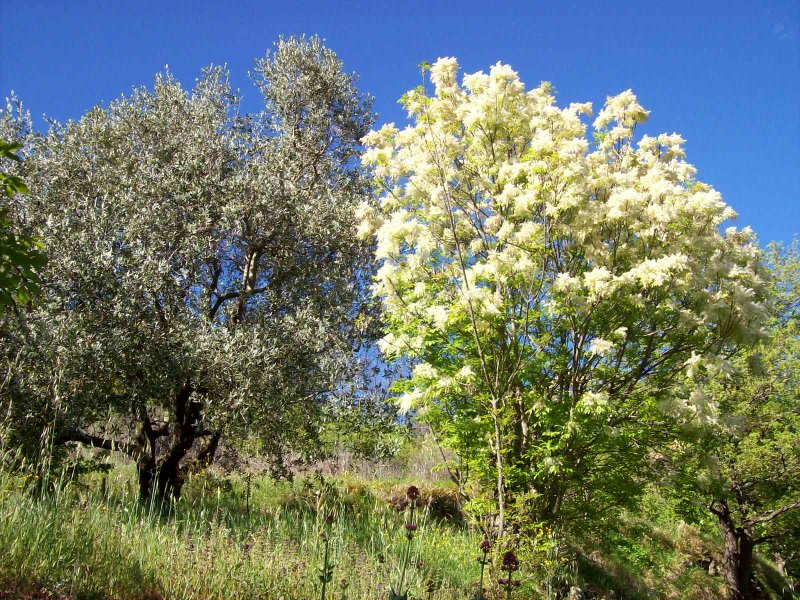An Italian Quiz For April – The Solutions Posted by Serena on Apr 29, 2016 in Culture, Grammar, Italian Language
Here are the answers to our recent quiz. Well done those of you who had a go. Those who didn’t, I shall want to hear your excuses, and they’d better be good. None of that “the cat ate it” nonsense!
But seriously, give us some feedback, was it too difficult? Did you not feel confident enough to post your answers? Do you have technical difficulties in posting your comments? Do let us know because your comments help us improve our articles.
A. General Knowledge
We asked you to give a complete answer in Italian to the following questions:
1. in quale regione si trovano i trulli? Answer: I trulli si trovano in Puglia
2. come si chiama la piazza dove si corre il Palio di Siena? Answer: La piazza dove si corre il Palio di Siena si chiama Piazza del Campo
3. quale famoso musicista ha composto l’opera ‘La Traviata’? (two possible grammatical constructions) Answer: Giuseppe Verdi ha composto ‘La Traviata’ or ‘La Traviata è stata composta da Giuseppe Verdi
4. quali ingredienti ci vogliono per fare gli spaghetti all’amatriciana? (see this post: The Amatriciana Dilemma) Answer: Per fare gli spaghetti all’amatriciana ci vogliono il guanciale, i pomodori, l’olio d’oliva extravergine, il vino bianco secco, il pecorino grattugiato, il peperoncino, sale e pepe, e gli spaghetti, ovviamente.
5. come si intitola il primo libro della Divina Commedia di Dante? Answer: Il primo libro della Divina Commedia si intitola ‘Inferno’
6. chi ha affrescato la Cappella Sistina? (two possible grammatical constructions) Answer: Michelangelo ha affrescato la Cappella Sistina or la Cappella Sistina è stata affrescata da Michelangelo

These two trees both play an important role in traditional Italian culture and cuisine. Can you identify them? The one on the left is fairly easy, the one on the right is very difficult.
On the left: olivo, on the right: frassino, also known as l’albero della manna
B. Grammar
Translate the following sentences into Italian using the grammar rules illustrated in Dammi il Cinque Part 1 and Dammi il Cinque Part 2:
1. give me 200 grams of Parma ham = dammi 2 etti di prosciutto di Parma
2. is Maria there? tell her that I want to talk to her = c’è Maria? dille che voglio parlarle
3. let us in = facci entrare
4. go and get me a glass of water, please = vammi a prendere un bicchiere d’acqua
5. these are Giorgio’s reading glasses, give them to him = questi sono gli occhiali da lettura di Giorgio, daglieli
6. this song is beautiful. Let me listen to it again = questa canzone è bellissima. Fammela riascoltare/ascoltare di nuovo
C. Conversation
In a shop window you see a shirt you really like, so you decide to buy it. Translate the English sentences below into Italian. You can refer to these posts: Buying Clothes in Italy part 1 and Buying Clothes in Italy part 2:
Commessa: “Desidera?”
You: “Can I see that shirt that is in the window?”
“Potrei/posso vedere quella camicia che è in vetrina?”
Commessa: “Che taglia le serve?”
You: “44. Can I try it on?”
“La 44. Posso provarla/La posso provare?”
Commessa: “Sì, certo, il camerino è lì in fondo, a destra”
You: “The sleeves are a bit short. Do you have a similar model?”
“Le maniche sono un po’ corte. Avete un modello simile?”
Commessa: “Nella 44 abbiamo questa camicia … è un po’ più elegante, ma molto bella”
You: “It’s comfortable … I like it. How much is it?”
“E’ comoda … mi piace. Quant’è/quanto viene/quanto costa?”
Commessa: “Viene 45 euro”
You: “It’s a good price, I might buy two. Do you have other colours?”
“E’ un buon prezzo, quasi quasi ne compro due. Avete altri colori?”
Commessa: “Abbiamo il bianco avorio, il celeste, il lilla, e il grigio”
You: “I like the blue one. I’ll have both shirts”
“Mi piace il celeste. Prendo tutte e due le camice”
Commessa: “Ottima scelta. Sono 90 euro”
You: “Here’s 100 Euros”
“Eccole 100 euro/Ecco 100 euro a lei”
Commessa: “10 euro di resto a lei. Arrivederci e grazie”
You: “See you”
“Arrivederci”

Build vocabulary, practice pronunciation, and more with Transparent Language Online. Available anytime, anywhere, on any device.





Comments:
donnabell:
Mi scusi!I didn’t reply because my grammar is shamefully weak. (I did fairly well on General Knowledge and Conversation.) It’s not that the Grammar section was too hard; it’s that I’m lazy about improving my grammar–learning vocabulary is so much more interesting and fun.
I delight in your posts and have often meant to thank you. I’ve been reading them for a few years now and am gratified at how far I’ve come in my comprehension (still a long way to go, obviously). Thanks again, and meow to the cats.
Virginia Corrigan:
Mi piace molto questo quiz!
Non è stato troppo difficile, e era divertente!
Dovrete farli più spesso, secondo me!
Grazie mille.
Evelyn Ferioli:
Sorry that I did not do the test. I can read most of the articles, but I have difficulty when trying to answer the questions. I do enjoy reading the articles, but I guess you could say that I am tongue tied when trying to answer. Thank you for the blog. Evellyn
lettura:
L’ho fatto con alcune errore. Devo studiare di più, invece di leggere le lezione e basta. Ho fatto un nuovo mese risoluzione: studiare ogni blog almeno cinque volte! Quando lo uso in tal modo è molto utile. Grazie.
John Au:
Ho fatto tanti errori – e ho imparato tanto. Grazie!